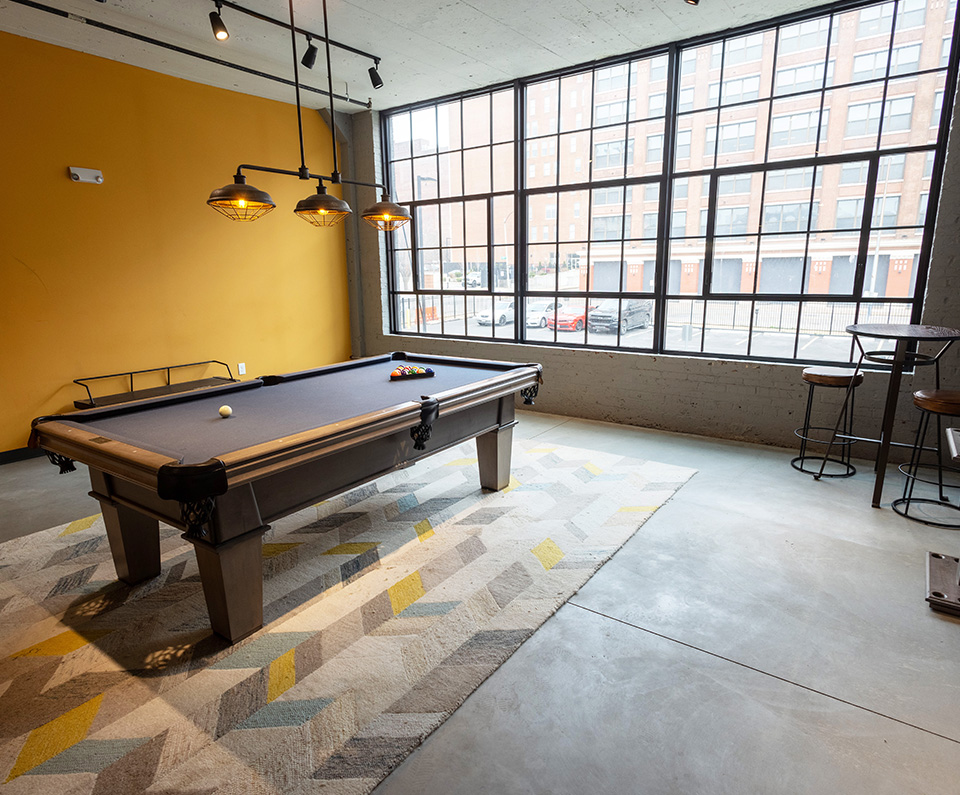
Life is a little different for Larry Chapman.
He’s homebound in St. Louis after a decade spent on the road, working 80 hours a week, developing large-scale industrial and office projects in major cities across the U.S.
His focus now is on local projects, like a food truck garden in south St. LouisCounty and a new office building in Creve Coeur, that reinvigorate the community through his new development firm, SenecaCommercial Real Estate.
In July 9, he partnered with Guerrilla Street Food co-owner Brian Hardesty to open 9 Mile Garden in Affton, an inner ring suburb, that brought the state its first food truck garden. It’s a shift in focus for Chapman, who just over a year ago partnered with Clayco founder Bob Clark to acquire and redevelop the former AT&T building, a 1.4 million-square-foot vacant skyscraper in downtown St. Louis. The deal ultimately fell through.
“If you had told me five years ago I’d do a 9 Mile Garden, I would have said you’re crazy,” Chapman said.
After seven months of living through the Covid-19 pandemic, Chapman talked to the Business Journal about his shift in focus, where his interest is with the former AT&T Tower and what opportunities he sees in the St. Louis commercial real estate market.
What excites you about the commercial real estate market now?
Well, first of all, what always has excited me about my business is, I get to make it up as I go along. I literally get up every morning and make up what I’m going to do for a living. And that part is just fun. I like it. In terms of St. Louis, one of the things I realized is that while St. Louis may not be setting the world on fire, the people who live here love living here. And that means it’s ripe for doing things that the community can embrace.
If you had told me five years ago I’d do a 9 Mile Garden, I would have said you’re crazy because I was building warehouses all over America as fast as I possibly could and I was building office buildings in downtown markets. And then I got to thinking about Affton Plaza (where 9 Mile is located), and I said, “You know what, let’s not take the traditional view anymore. Let’s take the view that fits this environment.” Out of that, 9 Mile Garden was born literally at a lunch table with Brian Hardesty. The community loves that stuff, and if you keep doing things like this, people will stay here.
How would you say the commercial real estate market performed?
in St. Louis this year? It’s nowhere near where we want it, but it’s remarkably stable. You’re seeing a lot of warehouse and distribution projects, last-mile facilities. I think it’s great. Everybody’s learned, particularly with Covid, that they can pretty live their lives well using the delivery systems that are out there. As we think about our developments now, we are spending more time figuring out how to get delivery trucks in and out because they’re a new problem. You have these trucks just stopping in the middle of everywhere and people stealing packages off people’s front doors. So we’re trying to think through how we make that work.
What opportunities do you see for your company?
Finishing what I started — Edge@West still needs leasing. There are a couple of opportunities that have presented themselves, including one up in North County, which I’m not prepared to talk about yet, but pretty soon hopefully will be. Then I keep trying to do stuff in the city but that is really hard; the crime climate and all of the things people are worried about down there with getting the investment community comfortable. St. Louis has some repairing to do. A lot of projects being planned for the city have slowed down a bit. Even the AT&T Tower thing we were chasing after — we would never do that. At least I wouldn’t personally. It’s just too big and too much under the current environment. It’s not that I don’t love the city, I just don’t know how to get in there and fix it.
For downtown in particular it’s almost like it’s too big of a challenge for developers.
If you go into a lot of other cities, leadership there borders on “crazy” in doing things. Everybody here is more about being safe than they are about doing bold things. As long as that’s the case, then you aren’t going to see a lot. I tell leaders all the time, just do things boldly. People won’t remember how crazy it sounded if it’s successful. So how do you create environments that people want to come to? I would love it if young people wanted to flock to St. Louis because there was so much fun stuff going on. We’re family friendly, but when you’re young and single there isn’t much (to keep you here). That really is the big challenge. Until we figure that out, we’re not going to have the growth we need to be robust.
What are your thoughts on Ascension transitioning to a work from home strategy indefinitely?
I hope they can be successful doing it. My personal belief is that 10%, maybe 15% of the workforce can effectively do that in the long term. In the short term, you can do anything, right? I’ve been around long enough where this is the fourth time in my career to have the demise of the office space predicted. What happens every time is that the kinds of synergy and energy they get by people being together talking, collaborating, sharing ideas, and things like that, over time that goes away (with working from home).
You mentioned Edge@West. How’s that project going?
We’re going to finish it up at the end of December. FM Global is going to move in (as the anchor tenant). We’ve got a handful of potential tenants we’re talking to. Unfortunately, the second candidate I thought was going to go in saw its demise primarily because ofCovid. But we’ll find a new one. The building is so spectacular.
Are there things you learned with this project that you can apply to future projects?
Of course. But the biggest thing isn’t any one particular thing, it’s that we always have to remember everything we did yesterday may or may not apply the next day. And we really need to be open to what the world is telling us. We need to build that flexibility into our buildings so that they can deliver the experience people want.
What are you reading that you’re applying to your business?
My philosophy is, read about things that are interesting and unrelated to your business, and it’ll make you and your business better everyday. I spend most of my time reading science magazines. Because in the process, I have to think about things differently. And that new thinking process helps me with my business. So I would tell you don’t read more about your subject, read about something else and I promise you your brain will fill in the blanks.
Credit:
Steph Kukuljan | Oct 16, 2020
St. Louis Business Journal


All this has fired my curiosity about social media. It is pretty easy to see the power that these platforms have and their ability to create perceptions, which can quickly become reality. When searching for information, the quicker it’s found, the better. It is amazing how easy it is to believe that even small companies are now large and important based on social media. With the right hashtag on peak trends and the right influencer mentions, it seems anything is possible — for good or ill. Results on social media can be both rapid and ruthless. And a bad impression can be very difficult to overcome.
This leads me to thinking about downtown St. Louis and St. Louisas a region. In particular, I thought about current, difficult issues such as crime, lack of growth and negative perceptions of our region generally. Simply typing in the words “St. Louis” into a search engine often yields negative content among top results, while finding good news and positive things about St. Louis takes time and effort.
It seems to me that efforts to promote St. Louis, whether it’sGreater St. Louis Inc. or the city itself, should go out of its way to hire a large team of the best and most talented social media marketers and content creators (local or not), to develop the most robust social media campaigns possible. Every effort should be made to engage online influencers and advocates to advance and promote the good stories about St. Louis — not so that we don’t have to face our problems, but so that the narrative isn’t unfairly dominated by them. I honestly think most of these promotion budgets should be focused on social media, along with other digital tools such as search engine optimization. As important, entities like GSL, Explore St. Louis, the city, county and others need to work in concert with each other and pool their efforts. St. Louis has a long history of business and booster groups running their own shows, which wastes limited resources and can blunt the positive impact we all want to achieve. The creation of GSL is to some extent a recognition of this fact, but there are still lots of other players. To succeed in a social campaign, as in so many other things, we need to set aside our parochial interests and collaborate and, perhaps most important, do things differently.
This is something every business and person that cares about St.Louis can and should help with.
If we can promote enough “good news” stories, it would result in outsiders and even ourselves becoming more upbeat and supportive of the St. Louis community and more confident in its future. This won’t happen overnight, but it can happen. By changing not just the perspective of others, but our own perspective about St. Louis, we can help shape our future for the better. We can be among the top of more fun “cool places to live”national lists, instead of all the lists we don’t want to be on.
It also seems like the best and brightest among us in this arena tend to be younger and ready to change, which is exactly what we need to revitalize and improve every aspect of St. Louis.
I have been a brick-and-mortar real estate developer for more than43 years, and personally believe I’ve done a lot of good for the community. But what’s next? How do we better leverage evolving technologies born from the internet to improve and benefit St.Louis?
Is social media a big part of that answer? I think so.


